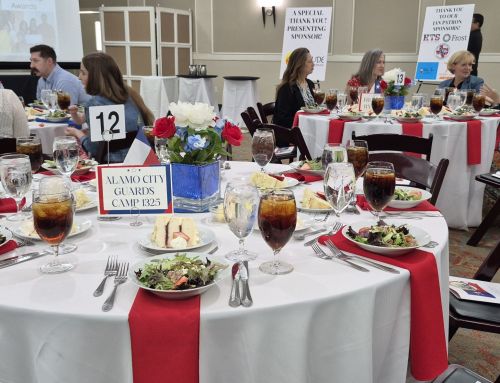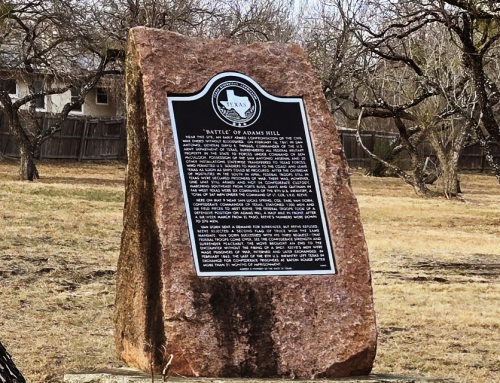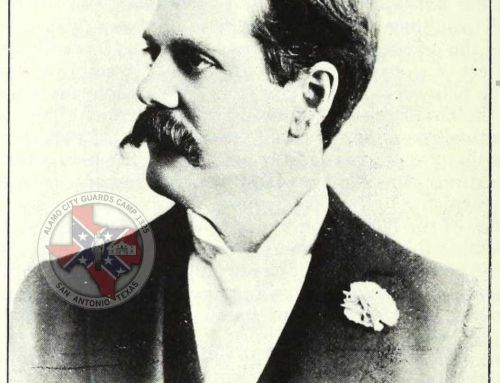Autonomy vs. Authority: Social Media Debate
[4.7 Social Media
4.7.1 To further strengthen the Nature and Purpose of the organization; all camps shall have the full enjoyment of utilizing social media platforms for the benefit of their camps. Such as posting of photos, videos and memes containing information regarding recruiting, announcements of camp activities and meetings, camp projects, southern heritage, educational and historical information as examples. Camps should refrain from creating posts on Social Media that is in conflict with Articles 2.1 and 3.2 of the Constitution of the Sons of Confederate Veterans, as well as posts that could potentially violate the intellectual property rights or infringe on the copy rights of others.
4.7.2 Each Camp Commander may appoint a Camp Social Media Administrator to assist in the facilitation Such forms of communications.
4.7.3 Each Camp may adopt it’s own Social Media policy to help in providing guidelines for their camp’s Social Media platform, provided that they are not in conflict with the National Sons of Confederate Veterans Social Media Policy established by the General Executive Council.
4.7.4. No discussions or postings of partisan political subjects nor political action endorsing aspirants for political office, the organizations’ specific internal business such as finances, disciplinary investigations and/or actions, or minutes of camp meetings shall be posted on any Camps’ Social Media platform.]
In an era where digital engagement is paramount, the proposed social media bylaw not only stifles creativity but also undermines the trust and autonomy that are essential for our organization’s growth and dynamism. By imposing overly stringent content restrictions and unnecessary administrative burdens, this bylaw risks turning our vibrant camps into echo chambers of compliance rather than hubs of innovation and community outreach. To truly harness the power of social media and uphold our organization’s values, we must champion a balanced approach that empowers camp leaders, respects their judgment, and embraces the full potential of modern communication channels. This rebuttal will explore why the proposed bylaw is counterproductive and outline a more effective, trust-based alternative.
- Overreaching Restriction on Content:
The proposed bylaw overly restricts the content that camps can post on social media. While it’s important to uphold the organization’s values, overly censoring content can hinder the camps’ ability to engage with their audience effectively. Instead of blanket restrictions, we should trust camp leaders to exercise good judgment in what they post while still adhering to the organization’s principles. Here are the key issues with this restriction:
- Stifling Creativity: The bylaw’s rigid restrictions can stifle the creativity and authenticity that make our camps’ social media presence unique and engaging.
- Alienating the Audience: Over-censoring content risks alienating our audience, who value genuine and relatable posts that reflect the true spirit of our camps.
- Missed Opportunities: By imposing strict limitations, we may miss out on spontaneous, impactful moments that can significantly boost our outreach and engagement.
- Contradicting Core Values: Over-policing content goes against the organization’s commitment to trust and empowerment, suggesting a lack of faith in our camp leaders’ ability to represent our values appropriately.
- Dampening Engagement: Excessive content control can lead to less dynamic and interactive social media channels, reducing overall engagement and community building.
- Unnecessary Micromanagement:
Mandating the appointment of a Camp Social Media Administrator and requiring camps to adopt their own social media policies seems like unnecessary micromanagement. Camp commanders are already responsible for overseeing various aspects of camp operations, and adding another layer of administration could stifle efficiency and creativity. Here’s why this micromanagement is concerning:
- Bureaucratic Overload: Implementing additional administrative roles and policies burdens camp leaders with bureaucratic tasks, diverting their focus from core responsibilities and hindering operational efficiency.
- Creativity Suppression: Instead of fostering creativity and innovation, excessive micromanagement constrains camp leaders’ ability to experiment with new ideas and strategies for social media engagement.
- Distracted Leadership: Camp commanders, already tasked with myriad responsibilities, may find themselves bogged down by social media management duties, detracting from their capacity to lead effectively.
- Inefficiency Costs: The time and resources spent on compliance and administration could be better utilized for activities that directly benefit camp members and advance our organization’s mission.
- Risk of Burnout: Overloaded with administrative duties, camp leaders may experience burnout, leading to decreased morale and effectiveness in their roles.
- Lack of Trust in Camp Leadership:
Implicit in the proposed bylaw is a lack of trust in the judgment of camp commanders and members. By dictating what can and cannot be posted on social media, it undermines the autonomy of individual camps and suggests a top-down approach that may not be conducive to fostering a sense of ownership and responsibility among members. Here’s why this lack of trust is alarming:
- Undermining Leadership Authority: The bylaw’s stringent regulations suggest a lack of confidence in the ability of camp leaders to represent the organization’s values effectively, undermining their authority and diminishing morale.
- Dampening Initiative: When trust is lacking, camp leaders may feel disempowered and less inclined to take initiative in promoting the organization’s mission and engaging with their communities.
- Eroding Accountability: By micromanaging social media content, the bylaw diminishes the sense of accountability among camp leaders, who may no longer feel personally invested in their camp’s online presence.
- Stifling Innovation: A culture of mistrust stifles innovation and creativity, as camp leaders may be hesitant to explore new approaches and ideas for fear of reprisal or non-compliance.
- Fracturing Community: Rather than fostering a cohesive and collaborative community, a lack of trust in camp leadership can breed resentment and division, undermining the organization’s unity and solidarity.
- Failure to Embrace Modern Communication:
While it’s commendable to recognize the importance of modern communication channels like social media, the proposed bylaw falls short in fully embracing their potential. Instead of focusing solely on restrictions and regulations, we should encourage camps to leverage social media as a powerful tool for outreach, engagement, and education about the organization’s mission and values. Here’s why this failure to embrace modern communication is problematic:
- Missing Opportunities: By overly fixating on limitations, the bylaw overlooks the immense potential of social media as a dynamic platform for connecting with diverse audiences, amplifying our message, and fostering meaningful interactions.
- Ignoring Trends: In an increasingly digital world, our organization risks falling behind by failing to adapt and capitalize on the latest trends and technologies in communication.
- Limiting Reach: Strict regulations may restrict our camps’ ability to reach and resonate with younger demographics who predominantly engage with organizations through digital platforms.
- Neglecting Engagement: Social media offers unparalleled opportunities for engaging our audience in interactive discussions, storytelling, and community-building, which are essential for sustaining interest and support.
- Hindering Innovation: A restrictive approach stifles innovation and experimentation, preventing camps from exploring new strategies and tactics for leveraging social media to advance our organizational goals.
- Legal Compliance Concerns:
While it’s understandable to be cautious about legal compliance, the proposed bylaw seems to err on the side of excessive caution. Rather than stifling communication out of fear of legal repercussions, camps should be encouraged to engage in open and transparent dialogue while remaining mindful of relevant laws and regulations. Here’s why these legal compliance concerns are exaggerated:
- Overly Restrictive: The bylaw’s overly cautious approach may unnecessarily limit camps’ communication efforts, hindering their ability to effectively engage with their audience and fulfill their organizational responsibilities.
- Stifling Innovation: Excessive concern about legal compliance can stifle innovation and creativity, as camps may become overly cautious and hesitant to explore new communication strategies and opportunities.
- Missed Opportunities: By focusing too heavily on compliance, camps may miss out on valuable opportunities to connect with their audience, share their mission, and mobilize support for their cause.
- Underestimating Competence: Camp leaders are capable of understanding and adhering to relevant laws and regulations without the need for overly prescriptive guidelines. Trusting their judgment can lead to more agile and effective communication practices.
- Damaging Reputation: A culture of fear around legal compliance may project an image of hesitancy and timidity, damaging our organization’s reputation and credibility in the eyes of our audience.
Proposed Alternative Approach:
Rather than imposing rigid restrictions, let’s empower camp leaders with the autonomy to craft their own social media strategies, aligning them with the organization’s values and mission. By offering comprehensive guidance and resources to navigate legal and ethical considerations, we can foster a culture of responsibility and innovation. Trusting our leaders to make informed decisions regarding their online presence not only respects their expertise but also cultivates adaptability and creativity, vital for advancing our organizational objectives in the ever-evolving digital landscape.






